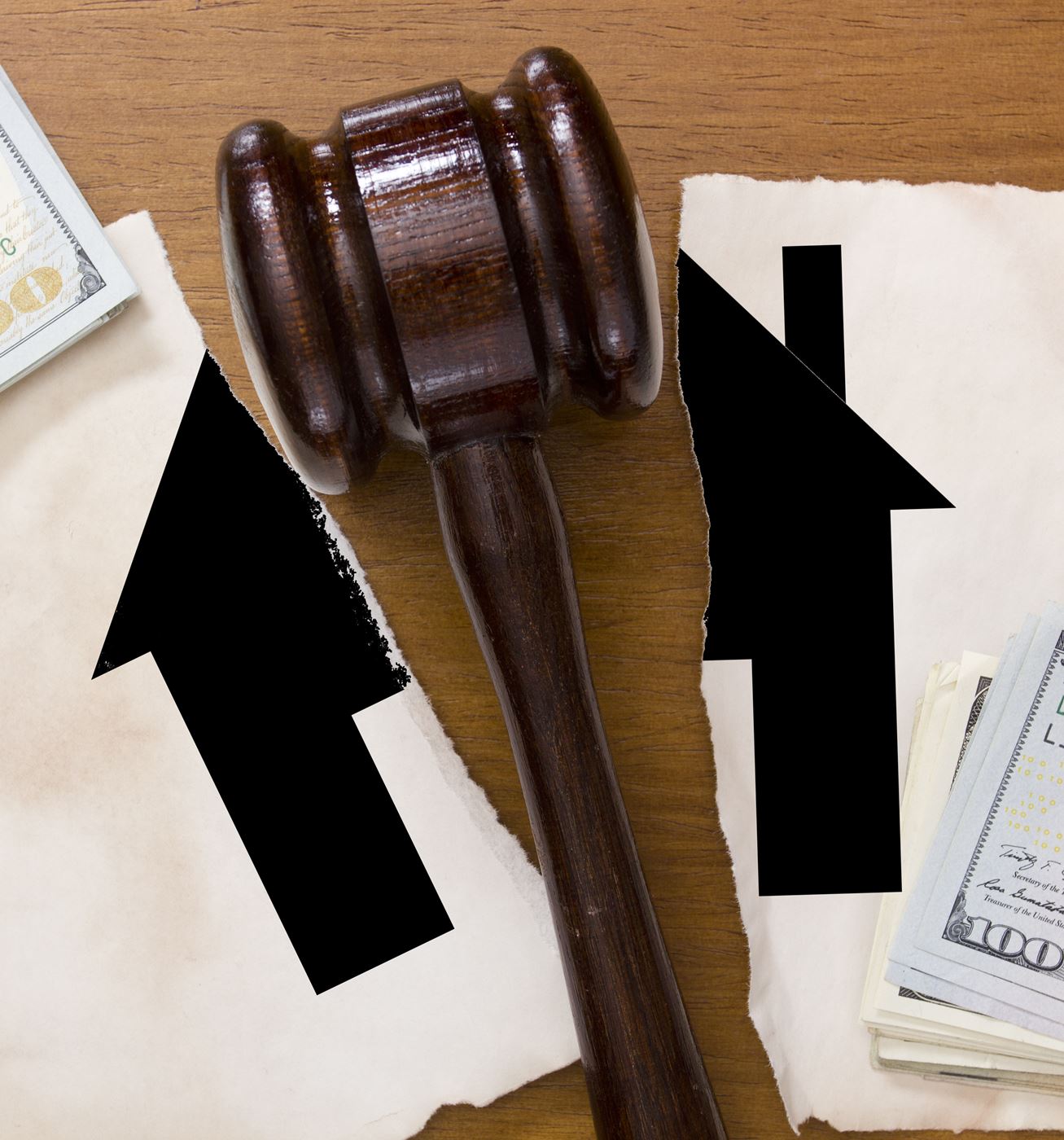Move on from a separation or divorce by claiming the assets you’re entitled to from your relationship.
Claim the Assets That You Deserve
When a relationship breaks down, it doesn’t matter who legally owns different assets. You and your ex-partner are both entitled to a share of everything – even if you haven’t contributed to the relationship financially.

Asset Division

Binding Financial Agreements (BFAs)

Consent Orders

Negotiated Property Settlements

Caveat and Injunction Lodgements

Property Orders
What Is Property Settlement?
Property settlement is how separating couples divide their assets (including money).
Because the law views all assets held by couples as part of a shared ‘pool’, you and your ex-partner may need to come to an agreement about who gets what.
If you can’t agree, you can ask the Court to decide for you.
Your relationship asset pool includes everything you both own, such as:
- Cash
- Shares
- Property
- Cars
- Jewellery
- Businesses
- Trust assets
It doesn’t matter whose name the assets are in.
If either you or your ex-partner owns them or have a beneficial interest in them, they’re included in the asset pool.
Normally, you’ll need to apply for property orders within 12 months of a divorce occurring or within two years of a de facto separation.
While you can apply to the Court for permission outside these time periods, permission may not always be granted.

The Property Settlement Process
-
Collate Assets
If you’re currently separating or about to separate, talk to a family lawyer and make a list of everything you and your ex-partner own (along with approximate values).
-
Negotiated Settlement
Once you know your relationship’s assets, you and your lawyer can start working out an agreement with your ex-partner.
-
Conciliation Conference
If your property pool is under $500,000, you may be asked to engage in a conciliation conference before going to court.
-
Court Orders
A judge from the FCFCOA will divide your relationship’s assets in a way that
Getting a BFA vs. Settling Post-separation
A property settlement can help you get the assets you’re entitled to, but there’s an easier way:
Sign a binding financial agreement (BFA) with your partner before or during your relationship.
Some people view BFAs or ‘prenups’ as un-romantic, but, in reality, a BFA is just like insurance.
You’ll probably never need it, but, if something goes wrong, it’s an easy, cost-effective way to protect the rights of you and your partner.

Property Settlement Negotiations
Moving on from a relationship doesn’t have to involve bitter court battles.
In fact, the best way to divide your relationship’s assets is to settle out of court.
In a negotiated settlement, you and your ex-partner both agree on who gets what.
To make this a fair process that protects your rights, it’s important that you have a solicitor to advocate on your behalf.
They can help you understand what you’re entitled to, organise a professional valuer to assess how much your assets are worth, and help you make sure that your ex-partner isn’t hiding assets from you.
If you’ve previously agreed to an unfair property settlement, a lawyer can help as well – the law says that any settlement must be just and equitable.
Talk to our team of experienced family solicitors to see how we can support you.
Conciliation Conferences in Melbourne
Even if out-of-court negotiation hasn’t worked for you, the Court believes that legally binding property orders should be a last resort.
If your relationship property pool is under $500,000, you and your ex-partner will normally be required to undertake a conciliation conference before going to court.
A conciliation conference requires you both to lodge certain documents before attending a meeting with a judicial registrar, who will work with you to reach a just, equitable outcome.
Conciliation conferences normally last for a few hours.
If you and your ex-partner still can’t reach an agreement, the registrar will make orders about what will happen next.


Property Settlement Final Orders
When all other avenues fail, a judge from the Federal Circuit and Family Court of Australia (FCFCOA) will make orders as to how your assets should be divided.
Your solicitor and your ex-partner’s solicitor will both have opportunities to explain why you should receive a certain amount of the property pool.
The Court considers aspects like who contributed to the relationship’s property pool (not just financially, but also through domestic or parenting work) and what the future needs of each party are, as well as what is just and equitable.
Any property orders issued by the Court are legally binding, but your solicitor can help you challenge them if they aren’t fair.
The Four Property Settlement Criteria
1. Identify and Value
The assets, liabilities and resources of both parties are identified and valued, creating the relationship’s property pool.
2. Contributions
The financial, non-financial, and homemaker and welfare contributions to the acquisition, maintenance and improvement of the property pool are assessed.
3. Future Needs
The Court considers the future financial needs of both parties, including their incomes and financial responsibilities.
4. Just and Equitable
The Court assesses whether the proposed settlement is just and equitable over the long term.
Property Settlement Resources
If you’re currently going through a separation where children are involved, reading up on the basics of how child custody works in Victoria can be helpful.

How Commercial Law is Regulated in Australia and Why Melbourne Businesses Trust Pentana Stanton
Property Settlement FAQs
How do I stop my ex-partner from selling our assets?
There are two main ways to stop your ex-partner from selling assets from your relationship pool without permission: injunctions and caveats.
An interim injunction requires a person to do or not do a certain thing. For example, you could get an interim order to stop your ex-partner from selling your house. Injunctions must be just and convenient, and may be granted unconditionally or with certain terms and conditions.
Injunctions can even be used to do things like hold off distribution to creditors (if your partner owes people money) or stop a trustee disposing of assets under a personal insolvency agreement (if your partner is bankrupt).
In situations where your ex-partner owns real estate, you can lodge a caveat, which is essentially an easier, faster injunction that sets conditions or limitations on the transference of that real estate to other parties.
For a caveat to have its intended effect, it must be valid – always get an experienced family lawyer to help you draft and lodge an effective caveat.
Do I need a solicitor for a financial settlement?
Although it’s possible to divide your property without a solicitor’s help, doing so may mean that you end up with less than what you’re legally entitled to. A solicitor can help you fully understand your rights, get proper valuations for your assets, advocate on your behalf during negotiations, and, if required, present your case to the Court in the best possible way.
How long does a financial settlement take during divorce?
There is no fixed amount of time for a property settlement matter to reach resolution. If you and your ex-partner both agree on how your assets will be divided, settlement can be as simple as signing contracts and getting your assets properly valued, a process that can be over in as little as two weeks.
If you don’t agree on a settlement, though, resolution can take much longer. Negotiated settlements can often be reached in about three months, while receiving final orders through a court can take more than a year.
The easiest way to settle disputes is normally by engaging in mediation guided by your lawyer and your ex-partner’s lawyer. It’s faster and more cost-effective than going to court, and can also help maintain an amicable relationship between you and your ex.
Who pays court fees in a financial settlement?
Normally, you and your ex-partner will pay your own legal fees. Sometimes, the Court will make a cost order – that is, either you or your ex-partner will be ordered to pay some or all of the legal costs of the other side.
A costs order will typically be made in situations where one party’s behaviour has resulted in financial outlay by the other party. An example is if one party needs to file a court application as a result of repeated non-disclosures by the other party.
If a costs order is made, it will typically only cover a portion (60–70%) of associated legal fees.




